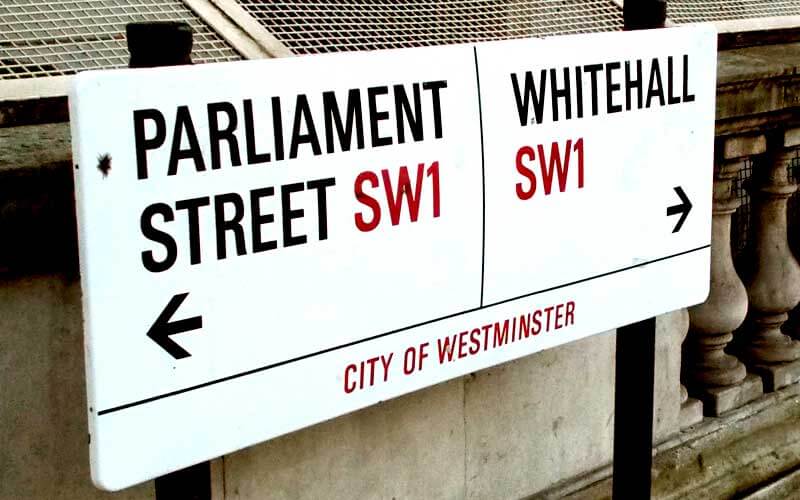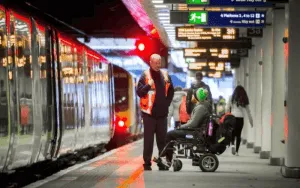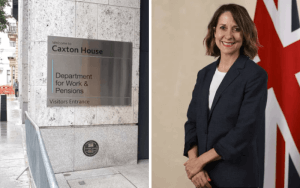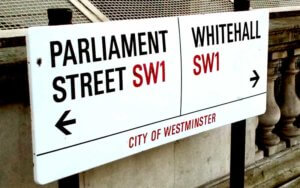Only a tiny proportion of the views expressed by the thousands of disabled people who took part in the government’s national disability survey have been read by a minister or civil servant, a freedom of information response suggests.
The new information has added fresh ammunition for disabled campaigners who believe that the National Disability Strategy – which was “informed” by the survey results and was published in July – has no legitimacy and should be withdrawn.
Most of the questions posed by the UK Disability Survey in January were restricted to multiple choice answers.
But four of them allowed “free text” answers, and the Cabinet Office says it received more than 25,000 answers from disabled people to these four questions.
A freedom of information response from the Cabinet Office now says that all 25,000 of these answers were analysed through so-called “topic modelling”, which the government has described as “a method of machine-assisted reading of text data, used to identify topics from free text responses to open format questions”.
A report on the survey responses says that only 1,200 of the 25,000 responses from disabled people were also analysed by researchers through “manual coding”, and even then, only with the aim of producing themes and sub-themes.
The freedom of information response says there is no written evidence to show how many responses were read in full by a civil servant, a minister or a researcher, with the Cabinet Office telling Disability News Service: “No information is held on the number of responses read in full by a Civil Servant, Research [sic], or Minister.”
The much-criticised survey is already being challenged by four disabled people through a high court judicial review.
Doug Paulley, one of the four taking the legal action, said: “I am unsurprised but dismayed that the government evidently doesn’t care enough about disabled people’s input into their strategy that they didn’t even bother to read most responses.
“The survey was so flawed that the strategy has no legitimacy, should be withdrawn and rewritten with disabled people.”
He said that the failure to read all the responses was not a surprise because the survey was “clearly deeply flawed from the start”.
He said: “The topics chosen were not directed by disabled people, the mechanism of survey was inaccessible to many disabled people and the restricted range of answers meant that the limited free text responses were for many the only way to put down what is really important to them.
“I spent time writing mine carefully; doubtless other disabled people did similarly – unless they were put off responding altogether due to the other issues.”
The Disability Unit declined this week to say how many of the free text responses were read by civil servants and ministers; how the government justified having the vast majority of the free text responses read only by a machine rather than a human being; and what the Disability Unit’s message was to the thousands of disabled people whose responses will not have been read by anyone, but were just “coded” by a machine.
The Disability Unit also refused to say if any of the free text responses were read by a civil servant or a minister.
But a Disability Unit spokesperson said in a statement: “All responses have been rigorously analysed and full details of the methodology for analysing the UK Disability Survey is published on GOV.UK.”
A note from the editor:
Please consider making a voluntary financial contribution to support the work of DNS and allow it to continue producing independent, carefully-researched news stories that focus on the lives and rights of disabled people and their user-led organisations.
Please do not contribute if you cannot afford to do so, and please note that DNS is not a charity. It is run and owned by disabled journalist John Pring and has been from its launch in April 2009.
Thank you for anything you can do to support the work of DNS…

 Regulator’s report on rail assistance ‘shows it is still failing to acknowledge right to turn up and go’
Regulator’s report on rail assistance ‘shows it is still failing to acknowledge right to turn up and go’ Ministers are secretly considering means-testing PIP, DWP admits, despite pledge in green paper
Ministers are secretly considering means-testing PIP, DWP admits, despite pledge in green paper Two members quit government’s ‘tokenistic’ network because Disability Unit is ignoring disabled people
Two members quit government’s ‘tokenistic’ network because Disability Unit is ignoring disabled people